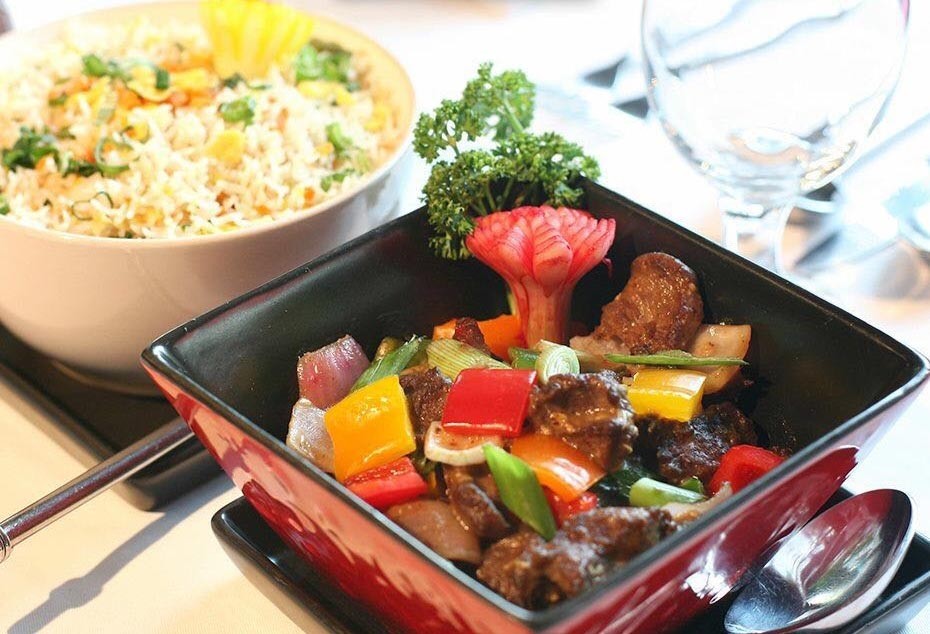
Food enhancers are now commonly used in the mainstream restaurants of the city. Experts say it’s an unhealthy trend

It is interesting to note that food at most restaurants in Lahore, specialising in Chinese and Thai cuisine, tastes almost alike.
It’s a worrying fact for the customers, especially those who ask (rightly!) why they should spend a lot if they can get a similar flavour at, say, a random roadside dhaba at cheaper rates.
Has it to do with the flavour enhancers that are now commonly used, well, obviously, to add to the taste?
Having said that, cooking requires a multitude of flavourings. But do we really need them? And, if we do, just how much? What exactly is ‘flavour’?
Google has an answer. It regards flavour as the most important ‘ingredient’ in food; flavour being a subtle mix of the five basic tastes -- saltish, sweet, bitter, sour and savoury.
While some flavours are obtained from natural sources, others are synthetic replicas. For example, monosodium glutamate (E621), also known as MSG, is customarily added to processed foods, especially soups, sauces and gravies. Other flavours are created during cooking or fermentation. Variations on this reaction produce some of the most delicious flavours.
Technically, allylpyrazine gives a roasted nut flavour, methoxypyrazines tastes like earthy vegetables; 2-isobutyl-3-methoxypyrazine has a green pepper flavour; and acetylpyrazines have a taste of popcorn.
Healthy alternatives are becoming increasingly hard to find. Moreover, wholesome, organic foods are not readily available. So why are we bent upon crushing our unique food flavours which are notably desi, organic and fuss-free, by adding ingredients that decrease the quality of the product?
It’s understandable that some cuisines require a particular ingredient to taste its best -- for instance, garlic, which is a mainstay of most cuisines, especially stir-fried Chinese and Thai but a copious amount of harmful preservatives takes away its distinctly pungent flavour.
Many frozen foods and pre-cooked meals contain artificial ingredients. Preservatives are supposed to extend the foods’ shelf life, while sweeteners and flavourings make a cheap produce taste better. But this has triggered a debate around the world on the hazards of such ingredients. Researches point out that the use of artificial dyes or food colourings leads to thyroid issues, autoimmune diseases and cancer.
Flavour enhancers, used in almost every type of food, are the real culprit. But this was not the case in earlier times when food colourings were derived from natural sources like turmeric and saffron. Overtime, food manufacturers have decided that colourful products sell better.
Owners of the eateries have an important role to play here, even if their motivation is to protect the reputation of their business.
When TNS tried to contact some of the people in the business, not many agreed to come on the record. Some of them promised to revert but they didn’t. Kamran Afzal, the owner of Opium, Thai restaurant, was forthcoming. He explained the ‘phenomenon’ in the following words: "Flavour enhancers are basically chemical products [meant] to add to the taste in one way or the other."
However, he agreed that these are not advised by health practitioners for common consumption.
"Also, there is no substitute for the original. Herbs, vegetables and home-made sauces can’t be replaced by artificial products. At Opium, we do not use any flavour enhancers," he declared. "We even grow our own Thai basil, lemon grass, Thai chillies, and other ingredients each of which has a distinct aroma."
Afzal vehemently denied using MSG in the food items.
Faisal Haroon, one of the owners of Mouthful, a popular fast food restaurant in Lahore, makes sure there is no use of microwave oven, deep fryer and MSG products. "We don’t freeze anything," he revealed. "We don’t need to, because we use free range, naturally fed chicken which is cooked in a clay oven with minimal seasonings. Himalayan salt and olive oil are used in plenty, though."
Hence, his glorious declaration that "our food never tastes like what they prepare at other eating places."
Talking about Thai cuisine, famous restaurateur Kamran Sheikh says, "Most, if not all, Chinese and Pan Asian food require the use of MSG but we [at Jing] avoid it totally."
He also speaks of a shortage of professional chefs.
According to Abdul Basit Choudhry, a Michelin star chef from Norway, whose restaurant Bryggen’s on MM Alam Road didn’t do well and had to be closed down, "There are only a few good chefs in the business. And they are in demand by all the top restaurants. No wonder they often keep shuffling, which may be why sometimes the [food] taste is similar."
Citing reasons why his style of cooking was rejected by the Lahoris, Basit said, "I did my best to understand their [Lahoris’] food palette and also improvised but nothing seemed to deter the average consumer who is accustomed to eating food with lots of spices and flavours.
"The purity and natural flavour of a dish must be maintained by using minimal ingredients. But in Pakistan, it’s the exact opposite. When you eat fish, it should taste like fish; you shouldn’t temper with its identity by doing lots of marination and cooking."
He called the practice as "rape" of a product.
"The European cuisine’s specialty is its purity -- it’s just about a sprinkle of salt and pepper."